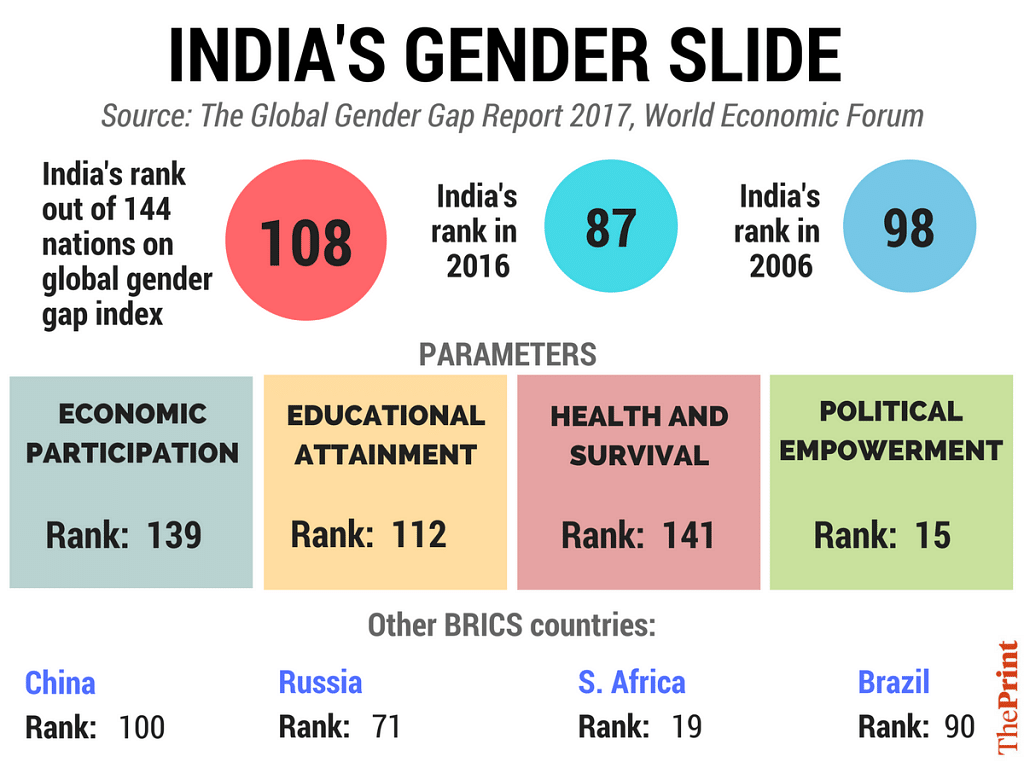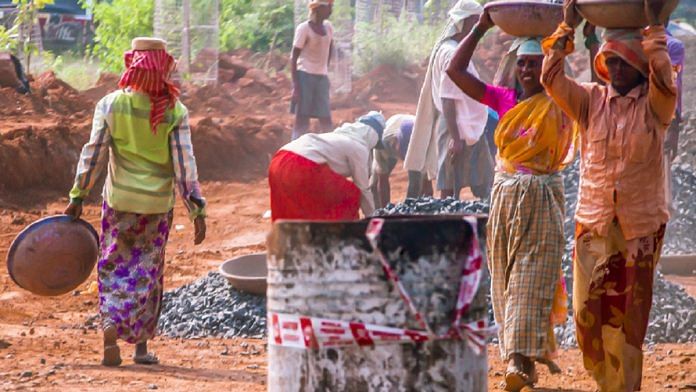India is at its lowest level since WEF started measuring gender gap in 2006, ranks poorly on economic opportunities and healthcare for women.
New Delhi: In the space of just one year, India has nosedived from 87th to 108th on the World Economic Forum’s Global Gender Gap Index (GGGI).
The ranking, in fact, is the lowest since the WEF first started measuring the gender gap, in 2006.
Simply put, inequality between men and women is increasing across various parameters.
Parameters
The GGGI ranks 144 countries on the basis of the inequality gap between women and men.
The factors kept in mind for this are economic participation, access to education, political representation and health and survival.
The report also helps in understanding how countries are distributing their resources and opportunities equitably between women and men, irrespective of their overall income.
India’s performance
One of the reasons India is failing to close its gender gap is the unequal opportunities for women to participate in economic activities. India ranks 139th among 144 countries on this parameter this year.

The other major factor setting India back is the lack of access to healthcare for women as compared to men. It ranked fourth-lowest in the world on health and survival, remaining the world’s least-improved country in a decade.
Although India ranks 15th on the parameter of political empowerment, the report suggests that women need to participate actively in Indian politics to maintain this position. “With more than 50 years having passed since the inauguration of the nation’s first female prime minister in 1966, maintaining its global top 20 ranking on the political empowerment sub-index will require India to make progress on this dimension with a new generation of female political leadership,” says the report.
The report also reveals that on average, 66 per cent of women’s work in India is unpaid, compared to 12 per cent of men’s work. Also, due to the lack of participation by women in formal economic sectors (such as the corporate sector), the workplace gender gap is reinforced, which reflects in India’s labour force participation parity rank – 136th.
Global performance
Globally too, this year’s report shows a widening gender gap for the first time since 2006. The findings also show that, overall, 68 per cent of the global gender gap has been closed.
The US dropped its ranking by four points to 49th position on the index, while China moved down one place to 100th.
The top three ranks are once again held by Scandinavian countries — Iceland, Norway, and Finland respectively.
According to the report’s predictions, western Europe is likely to close its economic gender gap in 47 years, whereas it may take 580 years for the Middle East and North Africa to do so. South Asia’s prediction is reported to be undefined.
The report says that “at the current rate of progress, the global gender gap will take 100 years to close, compared to 83 last year”. The report also estimates that the workplace gender gap will now not be closed for another 217 years.



